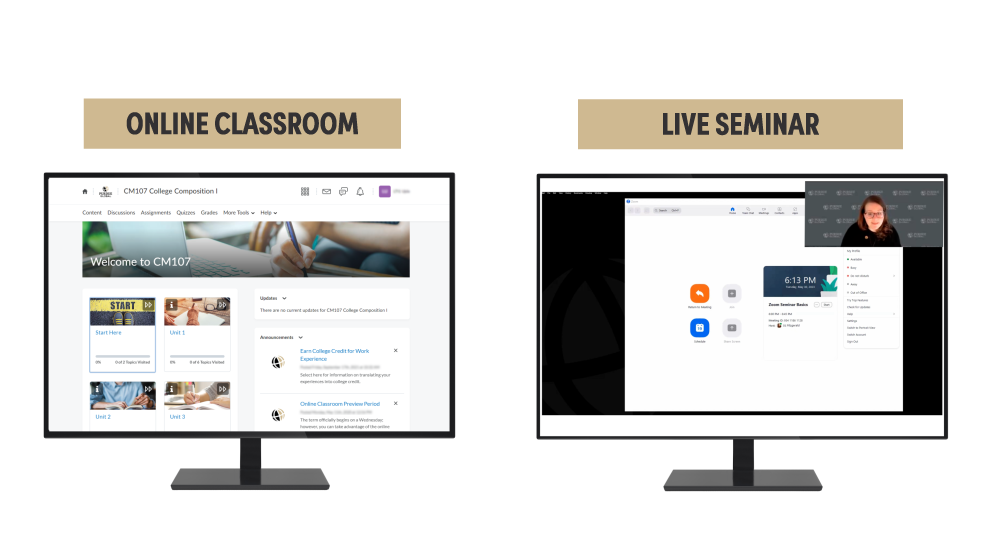
Online Health Care and Health Sciences Degree and Certificate Programs
Looking for a health sciences program that aligns with your career goals? Prepare to become a contributing member in rapidly evolving health professions and the communities they serve. Whether you’re taking your first steps into the health care industry, looking to advance within your role, or specialize in a particular area of study, there’s a path for you at Purdue Global’s School of Health Sciences.
Our undergraduate, graduate, doctoral, and certificate programs combine real-world knowledge with hands-on training, and are continually evaluated by experts in their fields. And because your classes are 100% online, it’s easy to create a study schedule that fits your lifestyle.
See Notes and Conditions below for important information.
Complete this form to receive the Purdue Global program guide.
Find the Online Program That’s Right for You
Health Sciences
Associate of Applied Science in Health Science for Military
Pursue advanced roles in the military or prepare for entry-level careers upon return to civilian life. By maximizing your allied health occupation and prior medical training, you can shorten the time needed to complete your degree.
- Preprofessional
Associate of Science in Health Science for Military
Lay the groundwork for future bachelor's-level programs and roles such as physician assistant, physical therapist, medical doctor, and more with health science courses that build upon your training.
- Preprofessional
Bachelor of Science in Health and Wellness
Support, encourage, and educate people to live healthier lives and prevent illness or injury. Gain the skills to work in health care settings such as hospitals, pharmaceutical companies, fitness centers, and more.
Bachelor of Science in Health Care Administration
This program prepares you to manage, operate, and oversee health care facilities as it relates to budgeting, employment strategy, and more. Customize your degree by focusing electives on a particular area of study.
Bachelor of Science in Health Education and Promotion
Learn to plan, implement, and evaluate health programs at the community level. By program's end, you'll be prepared to sit for the Certified Health Education Specialist® exam. This program includes an accelerated master's degree path.
Bachelor of Science in Health Information Management
Learn to plan information systems, develop health policy, and identify health information needs. By program's end, you'll gain the skills needed to integrate technology into patient care and meet the growing demand for HIM professionals.
Bachelor of Science in Health Science
Improve patients' health and quality of life. This program blends online instruction with an optional on-the-job internship under the mentorship of a faculty Advisor. Graduates work in a variety of roles and settings within the health care field.
- Military Physician Assistant Preparation (MPAP)
Bachelor of Science in Nutrition
Explore the principles and pharmacology of nutrition and how dietary choices affect lifestyle. Prepare for various certifications and credentials. This program also includes an accelerated master's degree path.
- Holistic Nutrition
Doctor of Health Science
Prepare to drive change and address challenges in fields related to health, health care, and public health. The program focuses on professional practice and allows you to align your degree with your goals through open electives.
ExcelTrack® Bachelor of Science in Health Care Administration
Earn the same Bachelor of Science in Health Care Administration degree in a more flexible, affordable way. If you have previous college credit or experience in the field, our self-paced ExcelTrack® option could be a great learning experience.
Master of Health Care Administration
This program prepares you for leadership roles managing and overseeing health care facilities, building the advanced skills required for a master's degree. By program's end, you will be ready to enter fields in the public and private sector.
Master of Health Informatics
Explore the processes and tools used to record, store and analyze health care information. Coursework covers leadership, epidemiology, health care data analysis and health information systems.
- Health Information Management
Master of Public Health
Acquire the practical skills training and experience to enter leadership roles within the public health field. Customize your program by choosing one of three concentrations or the generalist option.
- Epidemiology
- Public Health Informatics
- Public Health Leadership and Administration
Master of Science in Health Education and Promotion
Design, implement, and evaluate health programs. Earn the skills and training in the eight areas of responsibility for health education specialists, as published by the National Commission for Health Education Credentialing, Inc. (NCHEC).
Medical Billing and Coding Certificate
Learn skills to submit medical claims, code medical diagnoses, operate computerized billing systems, maintain medical records, and more. Gain experience through virtual labs and take a nationally recognized certification exam before you graduate.
What Health Sciences Area of Study Are You Interested In?
Online Health and Wellness Programs
With a growing emphasis on preventive care, there’s never been a better time to enter the health and wellness field. Study the various approaches to health and wellness, including the integration of mind, body, and spirit.
Online Health Care Administration Programs
Health care administrators sit behind the scenes, managing the operations of health care facilities while regularly interacting with doctors, nurses, surgeons, and technicians. Graduates in this field have a direct impact on the lives of patients.
Online Health Education and Promotion Programs
Health educators work to promote health and prevent disease through development of individual and community strategies and scholarly research. Graduates of these programs work in fields such as schools, corporations, health care, and more.
- Bachelor of Science in Health Education and Promotion
- Master of Science in Health Education and Promotion
Online Health Information Management (HIM) Programs
Today’s health care system is reliant on data. Health information management works to protect digital and traditional medical information. Graduates of these programs work in roles such as clinical data manager, compliance officer, and more.
Online Health Informatics Programs
Health informatics works to connect health care data to those who use it to advance medicine. Graduates work in a variety of roles reporting data to government agencies, conducting population-based research, and predicting health trends and outcomes.
Online Health Sciences Programs
Health science is a broad area of study with a variety of career outcomes. Programs build on overall concepts, applications, and research methods with an emphasis on preparing you for the dynamic and rapidly evolving field of health care in America.
Online Medical Billing and Coding Programs
Medical billing and coding professionals ensure that the business side of the health care field functions smoothly, support the delivery of quality patient care, and enable doctors and insurance companies to provide organized, accountable services.
Online Nutrition Programs
Nutritionists educate and provide counseling to individuals and communities related to food and health. Graduates work in a variety of settings such as hospitals, nursing homes, local health departments, school districts, research settings, sports organizations, and more.
Online Public Health Programs
In the wake of unprecedented health care events, an aging population, globalization, and spikes in chronic disease, public health professionals are needed now more than ever to monitor the health of populations. Prepare for roles that advocate for legislation, manage public health care programs, consult on public health initiatives, and more.
Industry Partnerships, Accreditations, and Designations
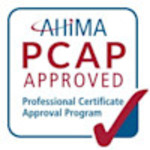
AHIMA Approved
The Purdue Global Medical Billing and Coding Certificate program is approved by the AHIMA Professional Certificate Approval Program (PCAP).
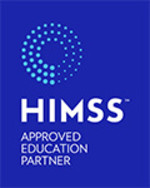
HIMSS Approved Education Partner
Purdue Global, which offers the Master of Health Informatics program, is recognized by the Healthcare Information and Management Systems Society (HIMSS) as an Approved Education Partner (AEP).
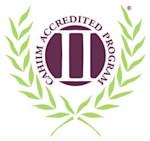
CAHIIM Accredited
The Health Information Management accreditor of Purdue Global is the Commission on Accreditation for Health Informatics and Information Management Education (CAHIIM). This accreditation applies to the Bachelor of Science in Health Information Management, Digital Health Professional certificate, and the Digital Health Leader certificate.
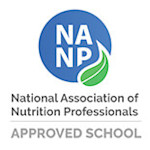
NANP Approved Concentration
The Bachelor of Science in Nutrition with a concentration in holistic is an approved holistic nutrition education program through the National Association of Nutrition Professionals (NANP).

Commission on Accreditation of Healthcare Administration Education (CAHME)
The Master of Health Care Administration program is accredited through the Commission on Accreditation of Healthcare Management Education (CAHME). This status demonstrates that the School of Health Sciences is committed to meeting the rigorous standards established by CAHME and continuous quality improvement.
What Are the Admissions Requirements?
To get started as a Purdue Global student, you must meet certain academic requirements and complete an enrollment application. Here’s what you’ll need to begin:
For Undergraduate Programs
- General Education Development (GED) or high school diploma for associate’s and bachelor’s degrees
For Graduate Programs
- Bachelor's degree from an accredited college or university for master's degrees and certificate programs
For Doctoral Program
- Master’s degree from an accredited college or university for master's degrees and certificate programs with a cumulative GPA of 3.0 or higher
Want to know if online learning is right for you before you enroll? Watch our virtual campus tour to learn more.
Understanding Your Investment
How long? How much? These are important questions! Try our online Calculator to estimate when you’ll finish and see how your prior credits and experience can save you time and money.
Ready to Enroll?
Purdue Global makes the process easy. You can apply online today (self-guided) or contact us to walk you through the process.
Upcoming Start Dates
Which Program Is Right for You?
Discover your interests and set your goals for success. Take our Career Assessment to chart your ideal path.
Take 3 Weeks to Get to Know Us
Start an undergraduate program with no financial obligation and no cost to apply.
Testimonial(s): Testimonials were obtained by Purdue Global. The views and opinions expressed are those of the individual; student experiences may vary.
Health Sciences Industry Resources
Explore health sciences career outcomes and industry trends, and choose the program that best suits your needs.
Is a Career as a Medical Billing and Coding Specialist Right for Me?
Job opportunities in medical billing and coding continue to grow. Learn more about this career path.
Exploring Holistic Nutrition: Education, Certification, and Careers
This niche market is gaining interest in personal health. If you’re considering the profession, there are some crucial things you’ll want to think about first.
Health Care Job Growth Outpaces Other Industries
Health care roles are in high demand—discover the areas with the highest growth, and the various paths to meet the demand.
Prepare for Certification
Sit for key certifications and credentials in various fields and experience hands-on learning in dynamic, real-world environments.
Online Health Sciences Programs
Why choose Purdue Global for your associate’s, bachelor’s, or master's degree in health sciences?
Featured Faculty — Ann Dickerson, MPH
Our faculty are health sciences experts who present you with real-world scenarios to develop your skills.
Frequently Asked Questions
Can you get a health sciences degree online?
Yes. You can definitely earn a health science degree online.
Whether you choose to study at a university or at an online college of health science, it’s not only possible to earn your health sciences degree virtually—it’s smart. Learning online can help you save on tuition costs and give you greater control of your time.
Most of today’s online health sciences degree programs are widely accepted, well-respected sources for beginning a career in health care, advancing your current credentials, or keeping your skills up-to-date. Whatever level of the profession you’re in, there’s an online path for you.
While online health sciences programs deliver coursework fully online, many health science careers require a live clinical or practicum experience where you can apply the knowledge you’ve gained in the classroom. Purdue Global degrees allow you to complete these practice experiences where you work, under the mentorship of a Faculty Advisor, or at a participating health facility in your community.
See Notes and Conditions below for important information.
How do online health sciences degrees work?
You might have some questions about going to class online. Our programs were built to be tailored to you, with direct support available whenever you need it. Whether by connecting with expert faculty or engaging with other students, you’ll never be alone in your studies.
Purdue Global is dedicated to providing the best online platform for effective learning. There are two major components to online learning with us:
- Live Seminars: these are the interactive, real-time portion of your education, led by a faculty member.
- Online Classroom: this is where you complete your work and take quizzes and tests. You can also connect with peers and faculty in this space. You’ll find all the resources and tools you need, including your course syllabus, grading rubrics, checkpoint activities, the classroom discussion board, assignment drop box, and reading materials.
While online health sciences programs deliver coursework fully online, many health science careers that are patient-facing require a live clinical or practicum experience where you can apply the knowledge you’ve gained in the classroom. Purdue Global allows you to complete these practice experiences where you work, under the mentorship of a Faculty Advisor, or at a participating health facility in your community.
Purdue Global also offers plenty of academic support for round-the-clock assistance:
- Tutors for writing, math, science, technology, and business
- The ability to submit a paper or ask a question about writing, math, science, and business
- Time management help
- Plagiarism information
- Webinars
- Numerous writing workshops on topics such as:
- Professional writing
- Grammar and mechanics
- Thesis development
- Citations
Our health sciences faculty not only hold advanced degrees but also have significant work experience in their fields. That means they’re knowledgeable about the current health care landscape—and they bring that knowledge into the classroom. You’ll learn from these experts no matter which class you’re taking, and can take advantage of their expertise during office hours.
Field Experience, Practicum, Externship, and/or Clinical Requirements: The field experience/practicum/externship/clinical provides the student with a supervised onsite learning experience in conjunction with an online course. The student is responsible for identifying an appropriate field experience/practicum/externship/clinical site, submitting all required documentation, and obtaining approval from the appropriate school staff.
Are online health sciences degrees accredited?
Yes, many online health sciences school programs are accredited, including those offered by Purdue Global. Still, you must do your due diligence and research the accreditation status of each institution you are considering. As an institution, Purdue Global is accredited by the Higher Learning Commission (HLC).
Purdue Global's Medical Billing and Coding Certificate program is approved by the AHIMA Professional Certificate Approval Program (PCAP). This designation acknowledges the coding program as having been evaluated by a peer-review process using a national minimum set of standards for entry-level coding professionals. This process allows academic institutions to be acknowledged as offering an AHIMA-approved coding certificate program.
The Health Information Management accreditor of Purdue Global is the Commission on Accreditation for Health Informatics and Information Management Education (CAHIIM). This accreditation applies to the Bachelor of Science in Health Information Management, Digital Health Professional certificate, and the Digital Health Leader certificate.
Purdue Global and our Master of Health Informatics program are also recognized by the Healthcare Information and Management Systems Society (HIMSS) as an Approved Education Partner (AEP). As a HIMSS AEP, Purdue Global has met HIMSS’s rigorous standards for delivering world-class, effective health care and health IT education. HIMSS-approved educational programs provide advanced knowledge in health information and technology or health care and prepare candidates to sit for the CAHIMS or CPHIMS exam.
The Bachelor of Science in Nutrition program is an approved holistic nutrition education program through the National Association of Nutrition Professionals (NANP) when it is completed with the holistic nutrition concentration.
The Master of Health Care Administration program at Purdue Global is accredited through the Commission on Accreditation of Healthcare Management Education (CAHME). This status demonstrates that the School of Health Sciences is committed to meeting the rigorous standards established by CAHME and continuous quality improvement.
What can you do with a health science degree?
Health sciences is a rapidly evolving field. According to the Bureau of Labor Statistics, the growth rate for jobs in health care occupations from 2023 to 2033 is much faster than the average for all occupations, with around 1.9 million job openings projected each year on average. Demand for health care services is expected to increase due to an aging population, evolving public health situations, and greater demand for preventive health care services.
Careers in health science require strong communication, analytical problem-solving, and ethical skills. Graduates receive a well-rounded education that’s valuable in a variety of settings and jobs with health science degrees within hospitals, community organizations, schools, corporate settings, and more.
So, what can you do with a health science degree? Here are some health science career pathways you may qualify for, depending on your program:
Medical and Health Services Manager
Health services managers plan, direct, and coordinate the business activities of health care providers. Their employment is expected to grow 29% from 2023 to 2033.
Dietitian or Nutritionist
Dietitians and nutritionists plan and evaluate nutritional programs to help people live healthier lives. Their employment is expected to grow faster than the average for all occupations from 2023 to 2033.
Home Health and Personal Care Aide
Personal care aides monitor the conditions of people with chronic illnesses or disabilities. Employment is expected to grow 21% from 2023 to 2033.
See Notes and Conditions below for important information.
How long does it take to get a health science degree?
The length of time it takes to complete your health sciences degree depends on the type of degree you’re studying for and your previous experience. Many students enroll at Purdue Global with a range of prior learning credits and experiences. Our student body includes everyone from professionals looking to advance their careers to career-changers who are new to the health sciences field. To make things easy, we provide a graduation date calculator to help you determine your expected graduation date based on your unique situation.
There are many health care careers you can launch in 2 years or less. Depending on the degree, average completion times vary from student to student. Undergraduate health sciences programs take an average of 4 years.
For weekly time commitments, we estimate Purdue Global students should plan for approximately ~15-18 hours per week, per course. (This estimate includes time spent in the online classroom in addition to offline study. Advanced courses may require additional time.)
We offer various ways to shorten your path to a health sciences degree. For example, our various Exceltrack® programs allow you to control your pace and the number of courses you take at a time, allowing you to earn the same degree, but faster and for less tuition.
See Notes and Conditions below for important information.
